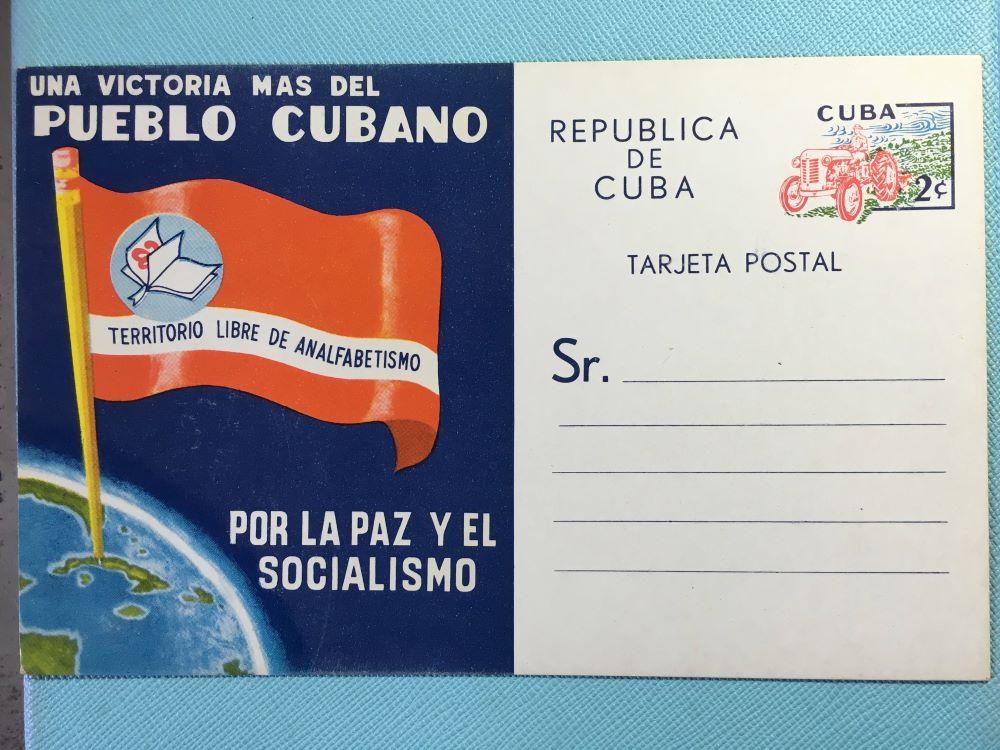The Cuban government printed postcards like this one as well as special stationery for Cuban volunteer teachers who participated in the 1961 Literacy Campaign. As former maestro voluntario Ernesto Chávez explained to his students, citizens were supposed to sign off their letters and notes, much as adherents of the state still do, “revolucionariamente” [revolutionarily yours] as a public testament to their loyalty. Decorated with the slogans Yet Another Victory for the Cuban people, Territory Free of Illiteracy and For Peace and Socialism, the postcards deflected criticism and fear generated by the government’s recent takeover of the press, the ending of elections and official demonization of not only opposition to government ownership, but of doubt in its success. When they received such mail, readers were supposed to become supporters of the “Cuban Revolution” without feeling that they were endorsing Marxism, Communism or even Cuba’s alliance with the Soviet Union. Conceived by top militants of Cuba’s Communist Party (still known as the PSP or Partido Socialista Popular until 1965), the tactic had a long, successful afterlife, especially among the United States’ younger generations who considered themselves the “New Left”. The latter also echoed another PSP-crafted strategy: the related idea that Cuba had only adopted communism in “self-defense”. Ernesto Chávez Collection, University of Florida.
